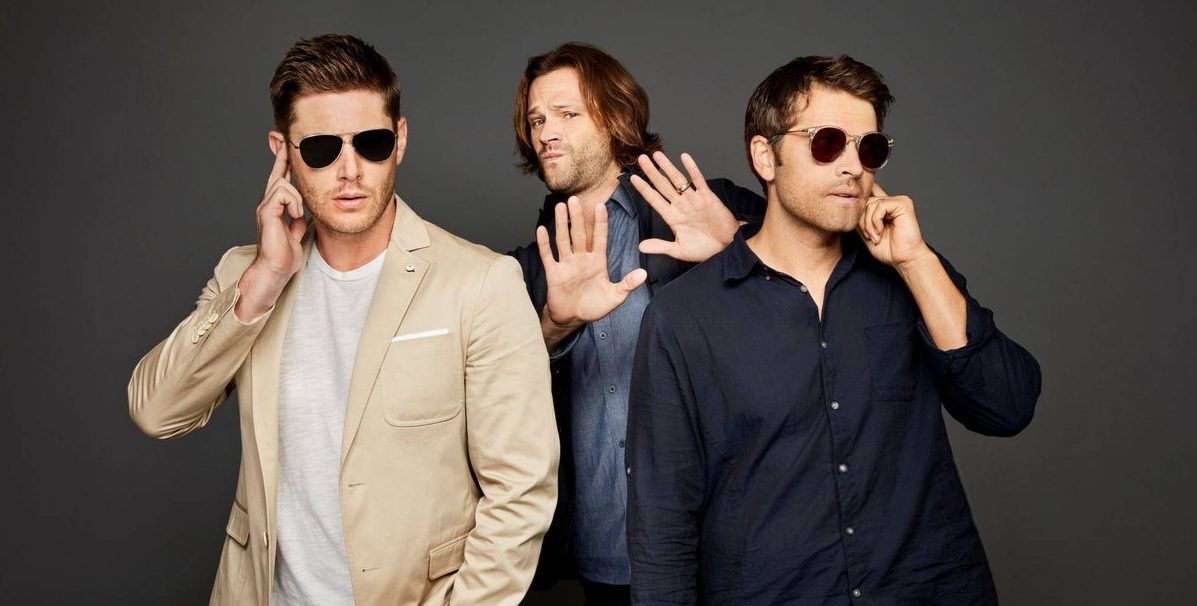Fans don't have nearly as big of an impact on the box office as they think they do. Several months after the release of Star Wars: The Last Jedi, bad fan behavior and hostile attitudes from the franchise’s supposedly most devoted followers has garnered regular headlines. Kelly Marie Tran, the actress behind Rose Tico, was driven to delete all images from her Instagram page following sustained harassment on the site, while director Rian Johnson faces a daily barrage of fury from fans who claim he has ruined the Star Wars legacy. Certain subsets of this anti-Last Jedi group have even taken credit for the box office disappointment of Solo: A Star Wars Story, claiming their boycott in protest of The Last Jedi had an indelible impact on the franchise’s future. While that film’s financial performance was certainly lacking by Disney and Lucasfilm’s standards, there doesn’t seem to be much proof that this so-called fandom boycott was the cause of it. Indeed, as modern blockbuster cinema has proven, fandom may not have the box office power it was once deemed to possess.
There’s a crucial difference between a typical fan and someone who is in a fandom. Everyone is a fan of something but not everyone is part of a fandom. Most people go to the movies but only a percentage of those people will devote themselves to the story beyond its running time. The organized subculture of fandom has been around for decades, with usage of the term dating back as far as the 1900s. Yet, what we know as fandom today is a more recent concept. Fandoms are defined by their investment in a common interest, be it film, TV, games, and so on. Someone in a fandom may participate in fan activities like cosplay, fanfiction, trivia, collecting merchandise, and so on. Fandom and the fans who fall under that banner are generally defined in terms of their emotional grasp on the product. Everyone loves at least one movie or TV show or book but they don’t necessarily dedicate themselves to it, nor do they place such an empathetic importance on it.
Related: Solo Is A Box Office Failure Because Lucasfilm Forgot To Try
It's important to draw this distinction because fandom can often be difficult to define in practice. Many people may not ever interact with a fandom or even know that they’re doing so. Not every fan does typically fannish things, like attend conventions or write fanfiction. Some people may fit the tropes of a fandom devotee but not define themselves as such due to the negative stereotypes surrounding it. Fandom is an oddly liminal space – not exactly real-life but still impactful on the cultural sphere. Being in a fandom is also a different experience to what it was only a decade ago. It’s more built on online communities and social media these days, a practice that’s become increasingly tangled due to sites like Twitter’s ability to allow fans to engage with actors and creators. Everyone has that image in their head of what a Star Wars or Harry Potter fan looks like, but the reality often contradicts that, and therein lies the big question of fandom’s true impact: How do we judge its strength when we’ve no idea how big or varied it really is?
- This Page: How Big is Fandom Actually?
- Page 2: General Audiences Drive Box Office
- Page 3: Fans Don't Actually Have a Big Financial Impact
How Big is Fandom?
It’s almost impossible to answer the question “How many people are in a fandom?” Finding data on this is highly difficult and even harder to confirm. There's still something of a gap between the most powerful fandoms and the most popular properties. For example, the CW show Supernatural remains one of the most popular fandoms, with vast amounts of fanfiction, fanart and online notoriety, but the show itself seldom gets more than 2.5m viewers. If you were to judge that show by online fandom alone, you’d think it was comparable to Game of Thrones, which regularly draws over 10 million viewers. But even in those cases, not every viewer would be considered a "fan" that follows all the theories and off-screen news.
We can look at the difference in numbers between certain sites to gauge fandom clout. Star Wars, for example, has 19.6 million likes on Facebook, but that's a drop in the ocean given that the site has had around 2.1 billion active users in 2018 so far, and the threshold to "like" a page is considerably low, so while there are 19.6 million people that "like" the stories set in a galaxy far, far away, many of those "likes" are of a far more casual nature. Reddit, a site fandom activity naturally gravitates towards, has over 894,000 subscribers in its main Star Wars subreddit. That's obviously quite a bit smaller than 19m but it gives us a decent explanation for the difference between general fans and a more engaged fandom.
Related: Why Solo's Box Office Predictions Were So Wrong
One possible measuring stick is in non-movie participation. It's one thing to like a Facebook page or buy a movie ticket opening week. It's another to own the movies at home or read books about non-movie canon. According to THR, 1.45 million six Star Wars movie discs were sold in 2015, and 2 million Star Wars books were purchased. According to Comichron, a few hundred thousand Star Wars comics (across all books) are sold each month. Obviously, each of those purchases doesn't represent a single fan, since there are numerous movies, books, and comics, and many fans purchase multiple of each, but for the sake of simplicity, let's oversample and assume there was zero crossover and every single book, movie, and comic was purchased by a different fan. The total comes to 3.75 million. Then there's conventions. Sticking with Star Wars, Celebration Orlando in 2017 set an attendance record with 70,000 fans. Again, assuming there's no crossover with those other numbers (there obviously is, but let's assume there isn't), we can add that to the 3.75 million to get 3.82 million. Then, just to make sure we're being generous, we can round up to 4 million. 4 million people consuming Star Wars outside the movie theater. That's a very respectable (oversampled) number, but we'll see how it compares to overall box office momentarily.
Page 2: General Audiences Drive Box Office
Fandom’s Power Works Best In Smaller Bites
A devoted group of people with disposable income and a desire to spend it on the things they love will always be a cherished demographic. Yet their impact may be most noticeable in less mainstream or big-budget circumstances. Shows like Supernatural aren’t in danger of surpassing The Walking Dead’s ratings, but that fandom is so adoring of the series that their loyal viewership has kept it on the air for 13 seasons, long after most networks would have canceled it for lack of interest. Veronica Mars was canceled thanks to low ratings, but the fandom stuck around long enough to throw money at a Kickstarter for a movie sequel, something that would have been unimaginable only a few years prior, and could never happen with bigger properties like movies with several hundred million dollar budgets.
Related: Disney Star Wars Continues The Prequels More Than The Originals
Fandom’s power is at its most tangible in smaller fandoms, but especially in the medium of television. In the era of Peak TV, where there are more shows than ever available to view at your fingertips, the key demographics are splintered. Tens of millions of viewers a night was the expected norm for a primetime network show, but those captive audiences don’t exist anymore. In those cases, clinging to a smaller viewership who stick with you through thick and thin makes a real difference. Fandom has power in those cases because it’s easier for a community to rally around something more manageable than a multi-billion-dollar franchise. Those fandoms have force and have recently shown to be sizeable enough to save shows like Lucifer, which got picked up by Netflix, or Brooklyn Nine-Nine, which got renewed by NBC, but movies are an entirely different beast.
General Audiences Make Up the Bulk of Ticket Sales
According to Mekko Graphics, the most frequent moviegoers to American cinemas are 18 to 24-year-olds, who see on average 6.5 movies a year. In a crowded market with dozens of major releases a year, less than 7 films a year is nothing, and the big studios are fighting to hold onto those audiences more than the people whose business is guaranteed.
Blockbuster cinema is bigger than ever. $100m budgets used to be a rarity, but now that’s considered on the low end of the scale for a major release or latest installment of a franchise. In order to make a profit on something like the latest Marvel or Star Wars film, it has to appeal to the widest audience possible, across lines of age, gender, race, geography and fan interest. It’s not just that fandom isn’t a studio priority with such products nowadays: It’s that North American audiences, in general, aren’t either. Studios like Disney who own those beloved fandom properties are more concerned with international audiences and reaching outside of those stereotypical fandom demographics. They need more women, more people of color, and more audiences in places like China to not only see the latest Avengers film but go back to the cinema over and over again.
The side effect of this is that now, everyone is a "fan." They may not be fandom specific or as dedicated as some, but their buying power and interest in previously niche properties is stronger than ever. Superheroes were once the nerdiest thing ever but now they’re to be consumed by billions of people. Science-fiction is more widely watched and read than ever, while anyone with Angry Birds or Candy Crush on their phone can be considered a gamer. The net of fandom has now been cast so widely that it encompasses the biggest demographics imaginable. Star Wars has a big and dedicated fandom but it’s not the thing deciding the fates of these films. That’s grown far bigger than any fandom, no matter how large of vocal, can take on.
Page 3: Fans Don't Actually Have a Big Financial Impact
Fans Don't Actually Have a Very Big Box Office Impact
Going back to the numbers, when a movie like Star Wars: The Force Awakens puts up over $2 billion at the box office, that's not coming from those 4 million devoted fans we talked about before. With average movie theater ticket sales under $10, $2 billion means 200 million tickets. If each of the 4 million devoted fans bought just one ticket, it'd be just 2% of tickets sold. Sure, some hardcore fans will see a movie multiple times, but that 2% number has a long way to climb before it represents a noticeable portion of the total box office.
That's not to say fans aren't important, but pandering specifically to them, be it through fan-service or focus on favored characters, is not a top priority. In fact, most movies have more to gain from trying to market to non-fans, since that's where there's a bigger sales opportunity. Fans are going to buy a ticket anyway. Franchises like Star Wars won’t be dictated to based on fandom desires. Those fans angry at things like racial and gender diversity in the series will be ignored – rightfully so – because it’s good creative and economical business for the films to be more inclusive in their casting. The top box office earners in 2017 had female leads, and Black Panther turned a lot of heads earlier this year. Certain creative directions will be taken because Lucasfilm has deemed it the right way to go, with general audiences in mind before the smaller, if more vocal, fandoms. Those decisions the fandom love may not gel with the audiences the film needs to reach.
Related: What Lucasfilm Can Learn From the DCEU For Future Star Wars Movies
Those demographics can make headlines, as evidenced by the loud subset of Star Wars fans who want The Last Jedi to be stripped from the canon or the DCEU fans petitioning for the Zack Snyder cut of Justice League. Plenty has been written about them but there's a gap between their ability to make news and their ability to make change in their pop culture spheres. For example, the Change.org petition for Warner Bros. to release the Snyder cut has an impressive 178,107 signatures as of the writing of this post. If each of them paid $20 for a ticket to Justice League, that would equal $3,562,140 of the film's gross, but that's nothing in the grand scheme of things given the film's ultimate gross of $657.9 million. Even if they all saw the movie multiple times. If those fans are the hardcore demographic of DCEU fans, the ever-loyal fandom who stick by them no matter what, their financial clout isn't enough to sway hearts at Warner Bros. As difficult as it is to know how bit fandom is, we do know how big it isn't, and it's definitely not sturdy enough to drive major decisions like this.
Fandom can be a great positive force. It can encourage creativity, foster inclusive and inviting communities, and improve one’s experience with the pop culture they love. Its upsides are certainly worth noting given the negative and toxic reputation swirling around various fandoms these days. Yet it’s also important to understand who is really being prioritized in this vast, international world of movie-making in 2018. For something like Star Wars to work, it has to be made for everyone, not just its devoted fandom. When everyone is a fan, does fandom have any true power?





